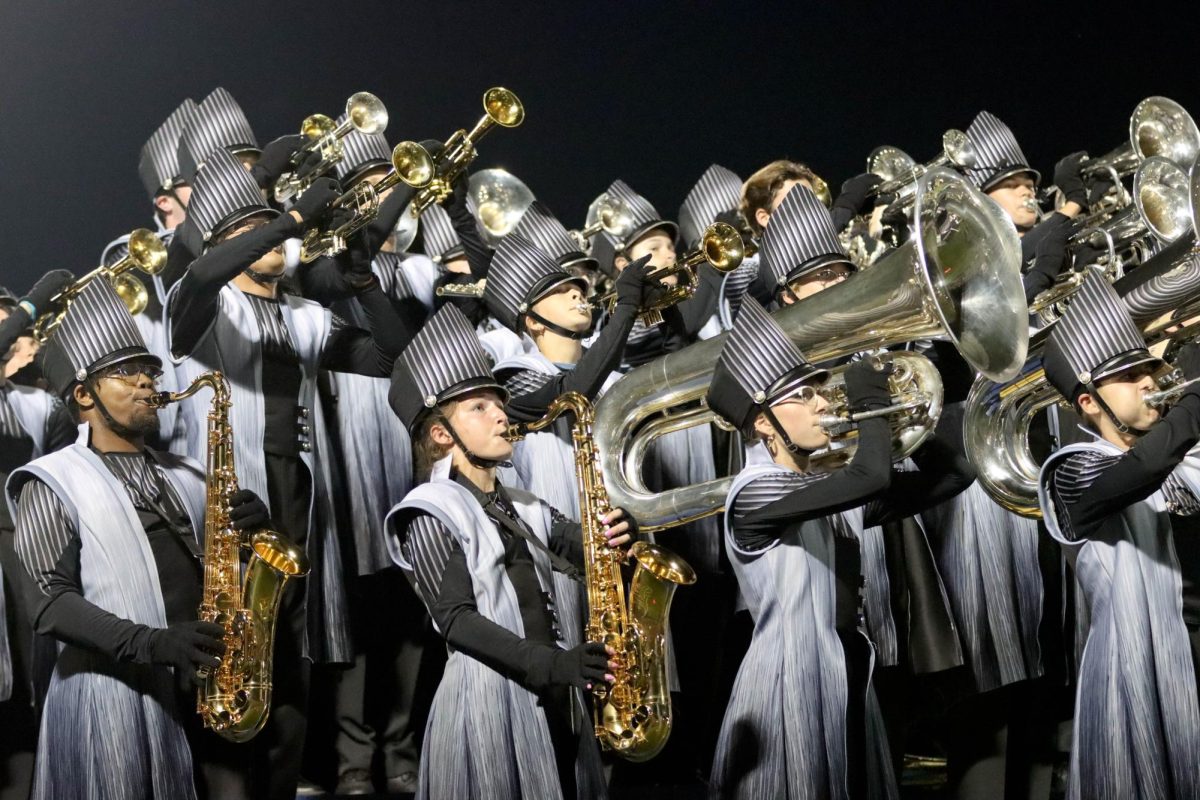The Marching Band hosted its 15th annual Tiger Ambush Classic Sept. 16, which saw EHS host 18 bands from the St. Louis area.
The competition is the largest event that the band hosts and is the second-largest it puts on, behind the band’s craft fair.
Fundraisers are important to the program, as operating costs are expensive.
“It does cost a lot of money to run a marching band, especially one as competitive as we are,” band director Ryan Lipscomb said. “In a lot of other districts, band fees are quite a bit higher. Fortunately for us, fundraisers like this help reduce student cost.”
The Classic is one of the only band events where that competitiveness is put aside. As the host school, Edwardsville can perform their show, but they cannot take part in the actual competition.
Not playing for scores removes some pressure from band members, but they are still required to work one two to three hours from 9 a.m. to 11:30 p.m., hosting bands and audience members.
“It can be stressful if you’re helping out a band that’s behind or [you are] dealing with the dinner rush,” junior saxophonist Luci Klingensmith said. “But it’s mainly just fun.”
Serving dinner is one of many jobs members work during the competition. In addition to serving dinner, students are guiding, working concessions, watching the gates and passing out waters to other bands.
Senior Sloan Watson, one of three drum majors who conduct the band, has additional responsibilities to manage.
“I was in charge of handing out awards to winning bands at both ceremonies,” Watson said. “As drum majors we were more heavily relied upon for warmups and transport to the field.”
This workload puts increased pressure on the three drum majors, and they still have to lead their band to a quality performance.
“We were chosen for our position because the staff trusts us to handle high pressure and stress situations to the same ability they are,” Watson said. “And in reality, the rest of the season leading up to the competitions prepares us very well.”
The band has performed this year’s show in front of an audience four times before. According to Watson, this develops “muscle memory,” meaning that every aspect of the performance is instinct by the time they perform.
“… we are more able to think about other things which allows us to perform better since we can fall back on those fundamentals,” Watson said.
Experience in both performing and previous Classics gives Mr. Lipscomb little anxiety regarding student performance.
“I’m very confident in what our students can do,” he said.


